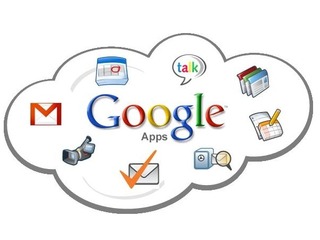DUOS expands AI capabilities to help seniors apply for assistance programs
It will complete and submit forms, and integrate with state benefit systems
Read more...
Google giveth, and Google taketh away.
On the same day that Google announced the first round of 24 total holiday gifts for users of Google+, including Photo Sphere on Android, along with updated Events and Hangouts (yay!) the company also reminded us what the end of the year is also about: starting over fresh, and getting rid of some of the useless junk that has been hanging around all year (boo!).
So Google declared Friday that it will be partaking in what it is calling “winter cleaning,” or a list of products that will be shut down or removed in the next six months.
“Last January, we renewed our resolution to focus on creating beautiful, useful products that improve millions of people’s lives every day. To make the most impact, we need to make some difficult decisions,” Venkat Panchapakesan, VP of Engineering, wrote.
Here is what will be going, beginning today until June 2013:
Sync
Google Sync is being shut down at the end of January, along with Google Calendar Sync, which is being shut down today (kind of short notice on that one, huh?). Also going at the end of next month is SyncML, which is a contact sync service that is used by older mobile devices, and Google Sync for Nokia S60.
Google Sync was originally designed for users to have their devices sync to Google Mail, Calendar and Contacts. The service it has since become outdated, though with the launch of CardDAV at the end of September, which allows third party clients, including the iOS contacts app, to sync a user’s Google contacts. Google also has protocols for syncing to email and calendar, IMAP and CalDAV, as well.
While consumers will not be able to set up new devices using Google Sync starting at the end of January, existing Google Sync connections will continue to function. In addition people who use Google Sync for Google Apps for Business, Government and Education will not be unaffected by the shutdown.
Calendar features
Google is also going to jettisoning “several less popular Google Calendar features.”
Beginning January 4, users won’t be able to create any new reservable times on their Calendar through Appointment slots, though the feature will continue to work until January 2014. Two Calendar Labs are also being shut down: Smart Rescheduler and Add gadget by URL.
Google suggests that its user access Find a time view or Suggested times instead of Smart Rescheduler.
Also, two features only available in the U.S., Check your calendar via sms and Create event via sms (GVENT), which are used for creating and checking meetings by texting information to Google, are also being discontinued today. Google says that it is getting rid of them “as most users prefer mobile Calendar apps.”
The rest of the cuts
Google also announced that The Issue Tracker Data API, which was intended for programmers who wanted to write client apps that could interact with Project Hosting on Google Code, will shut down on June 14, 2013. The apps were able to use The Issue Tracker Data API to create new issues, issue comments, request a list of issues, request issue comments for an issue, edit existing issues, and search for issues that match a particular criteria. There is nothing to indicate why Google shut this down, or if it will be replaced with another API.
And, finally, Punchd, an app that keeps loyalty punch cards on a user’s smartphone, will be discontinued for both iOS and Android on June 7, 2013. Merchants will no longer honor Punchd loyalty cards but users can continue to earn punches and redeem rewards at participating businesses until the app is shut down.
“We remained focused on developing products that help merchants and shoppers connect in new and useful ways,” Panchapakesan wrote.
Ongoing project
Cleaning out all of its old, outdated and unpopular services has been an ongoing project for Google since January, when it announced its New Year’s resolution: to continue refocusing on building good products for their users. Part of that process meant cutting out useless and repetative products.
“As we head into 2012, we’ve been sticking to some old resolutions—the need to focus on building amazing products that millions of people love to use every day. That means taking a hard look at products that replicate other features, haven’t achieved the promise we had hoped for or can’t be properly integrated into the overall Google experience, “ Dave Girouard, VP of Product Management, wrote in January.
These cuts were a continuation of a process that began in July 2011, after Larry Page took over as CEO, following the departure of Eric Schmidt.
The phrase used at the time was “More wood behind fewer arrows.”
In August, Google got rid of Google Apps for Teams, Google Listen and Google Video for Business, as well at least 150 Google-created blogs for products and services.
Most recently, Google announced that it would no longer be offering a free version of its Google Apps For Businesses, it was announced in a press release late Thursday.
Going forward, instead of offering both a free and premium version, only the paid version, of $50 per user, per year, will be available.
Google Apps is a service from Google which provides a suit of software services, including Gmail, Drive for cloud storage, Talk, Docs, and Calendar. Previously, businesses with fewer than 50 users had access to the free version, which provided up to seven gigabytes of space per user. The premium version, which is now the new standard, includes 25 gigabytes per user, 24/7 phone support, and a 99.9 percent uptime guarantee with no scheduled downtime.
The reason for dropping the free version, Google said, was that offering the free model to business slowed things down for both individuals and businesses.
”Technology offers us a way to make a big impact on the world. In 2013, we’ll keep working hard to build a seamless, amazing Google experience for you,” Panchapakesan wrote Friday.
(Image source: https://www.yellowstonegate.com)
It will complete and submit forms, and integrate with state benefit systems
Read more...The bill would require a report on how these industries use AI to valuate homes and underwrite loans
Read more...The artists wrote an open letter accusing OpenAI of misleading and using them
Read more...

